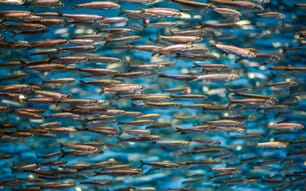A coalition of NGOs working to combat IUU fishing said: “Yesterday’s decision of the European Commission to give six more months to South Korea, Ghana and Curaçao can only be accepted if their governments give concrete proofs of combating illegal fishing. Real improvements will be measured not only by policies and regulations but by putting reforms into practice. The EU system of ‘yellow’ and ‘red’ cards and the consequent ban of import of seafood products from suspected countries are important steps in the global fight against illegal and pirate fishing.”
The process of issuing States with yellow and red cards is actively encouraged by a new coalition supported by the Oceans 5 funders’ collaboration.
The coalition includes Environmental Justice Foundation (EJF), Oceana, The Pew Charitable Trusts and WWF. The coalition will focus on supporting the continued and improved implementation of the EU’s efforts to prevent illegal fishing.
IUU fishing depletes fish stocks, damages marine ecosystems, puts legitimate fishers at an unfair disadvantage and jeopardises the livelihoods of some of the world’s most vulnerable communities. IUU fishing is estimated to cost between €7 and €17 billion annually, representing 11 to 26 million tonnes of catch.
The European Commission’s actions, which are part of the EU IUU Regulation (Council Regulation (EC) No 1005/2008), are aimed at deterring pirate fishing by denying non-cooperating countries access to the world’s most valuable seafood market. The legislation, introduced in 2010, allows fish to be seized in European ports, poor performing flag States and illegal vessels to be sanctioned, and coastal States to be encouraged to protect their marine resources.
Thirteen countries have been warned, or given ‘yellow cards’, by the EU since 2012. Earlier this year, three countries that had previously been given similar warnings—Guinea, Belize and Cambodia—were given ‘red cards’ and designated as non-cooperating countries. As a consequence, they are no longer permitted to export fishing products to the EU, and EU vessels are not allowed to fish in their waters.
Other countries that are currently working to avoid sanctions include Papua New Guinea, the Philippines, Panama, Togo, Sri Lanka, Fiji and Vanuatu.



